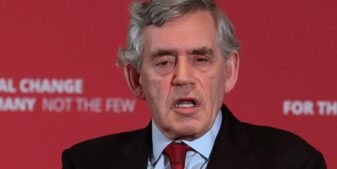Former Prime Minister of the United Kingdom, Gordon Brown, has called on the Labour government to hike gambling taxes.
Brown, who served as PM and Leader of the Labour Party from 2007 to 2010 after a spell as Chancellor for a decade prior, wants to tackle poverty by generating more tax revenue from UK betting sites.
The 74-year-old thinks raising taxes on the “undertaxed” gambling industry is “by far the most cost-effective way” for current Chancellor Rachel Reeves to prevent a “social crisis.”
BGC Slam Gordon Brown’s “Economically Reckless” Suggestion To Fight Poverty
The Betting and Gaming Council (BGC) called the plan “economically reckless” and argued it would only push gamblers into the black market of offshore sportsbooks and in turn bring about even less revenue from regulated streams.
Last month, a YouGov survey commissioned by the BGC revealed 28% of gamblers in the UK could head for the black market if tax harmonisation is introduced.
At this current point, online gambling is taxed in two categories – a general duty that covers racing and pool betting, taxed at 15% of gross profits – and a remote gaming duty that covers casino games, taxed at 21%.
Labour want to bring those categories together into a single tax called remote betting and gaming duty (RBGD) which the British Horseracing Authority fear could cost its sport as much as £160 million.
IPPR Believe Raising Gambling Taxes Could Generate £3.2bn Extra Per Year
The Institute for Public Policy Research (IPPR) is adamant that raising various gambling taxes could generate as much as £3.2 billion extra cash every year.
The IPPR think tank suggested increasing taxes on online casinos from 21% to 50% and raising those on slots and gaming machines from 20% to 50%.
The proposals focus solely on online gambling firms and want to avoid any changes to bingo or lotteries.
The independent charity thinks this extra money would cover the cost of scrapping the two-child benefit cap, which restricts child tax credit and universal credit to the first two children in most households.

